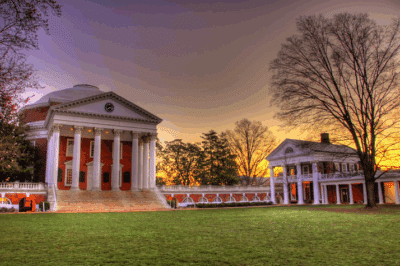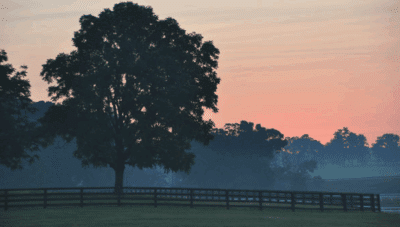100 Reasons To Move to Charlottesville VA
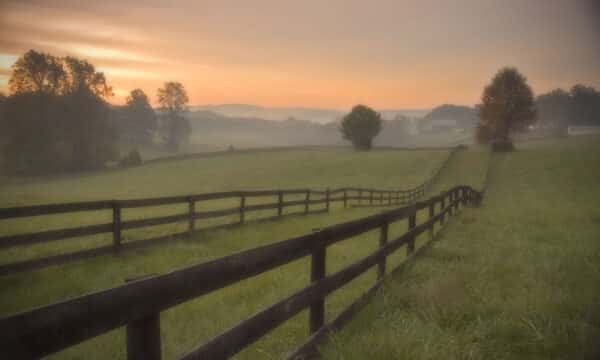
Charlottesville is a deliciously layered destination: a university town, a historic landscape, a wine-and-brew hub, hunting country, and working farms, with neighborhoods that range from tight-knit, walkable city quarters to sweeping country estates.
Below, I’ll walk you through 100 reasons to move to Charlottesville VA and what to consider when choosing your move: great public and private schools, 5 professional golf courses, Revolution & Civil War history, wineries & breweries, fox hunting and beagling culture, numerous neighborhoods and real estate flavors, Five Star resorts and standout restaurants, UVA sports, plus practical tips for relocating.
Wherever I state facts that are verifiable online, I’ve included sources you can follow for official details.
Cost of living Charlottesville, VA – Housing costs, living expenses, and affordability are major concerns for potential residents, especially given the university town nature that drives up housing costs.
Jobs in Charlottesville, Virginia – Employment opportunities are crucial for relocators, with many searches focusing on the job market and career prospects in the area.
Best neighborhoods in Charlottesville, VA – People want to know about different areas to live, safety, and community characteristics when considering a move.
University of Virginia area living – Given that UVA is deeply ingrained in the thriving community, living near the university has its benefits/drawbacks like any large college town.
Schools in Charlottesville, Virginia – Education quality is a primary concern for families, making school district information and educational opportunities frequent search topics.
I ask my Charlottesville home buyers why they wanted to move to Charlottesville, and the above reflect the main concerns people have when considering relocation: affordability, employment, housing location, the university’s influence on daily life, and education quality. Many people who move to Charlottesville end up loving it so much that they turn down higher-paying jobs elsewhere to stay.
Toby Beavers, a Charlottesville realtor guide since 2003, may be reached by text or phone at 434-327-2999


1-10: History & Legacy
-
Home to Thomas Jefferson’s Monticello, a UNESCO World Heritage site (and on occasion you’ll see a few of his Charlottesville historic homes on the market).
-
Highland, the historic residence of President James Monroe, still preserved and open to visitors.
-
Nearby estates of James Madison (Montpelier) and other founding figures dot the region.
-
The University of Virginia (UVA) campus including The Rotunda, designed by Jefferson, an architectural gem.
-
Rich colonial and Civil War history threaded across the landscape.
-
Historic Downtown Mall, pedestrian-only, filled with shops, galleries, theaters, and eateries. Livability.com
-
Keswick Hall a stately property with a storied past (and once owned by Laura Ashley, a Welsh fashion designer and businesswoman) and homes for sale on the property at the gated Keswick Estate, including nearby other Keswick VA real estate. (See also 26 Reasons to Love Living in Keswick VA .)
-
Boar’s Head Resort and Sports Club and The Clifton Inn, luxury lodgings with historic charm.
-
Marigold by Jean-Georges restaurant, offers upscale cuisine with a down-home ethos grown locally at Oakdale Farm.
-
Countless spectacular Charlottesville farms scattered in the rolling hills.
11-20: Education & Intellectual Life
-
UVA, a top-tier public university, brings world-class academics and culture.
-
Highly-rated public schools, generous STEM investments and AP offerings. Livability.com
-
Charlottesville City Schools boast a 90% on-time graduation rate and diverse student body.
-
Numerous highly regarded private schools, around 28, including The Covenant School, St. Anne’s-Belfield, Tandem Friends School, and Miller School of Albemarle. Private School Review+1
-
Private education enrolls about 24-26% of Charlottesville students, well above the state average. Private School Review+1
-
UVA’s public lectures athe Miller Center and cultural outreach open classrooms to all.
-
A vibrant intellectual environment, with debate, arts, and dialogue.
-
The UVA Rare Books Collection, the Fralin Museum, Leander McCormick Observatory Museum and the Kluge-Ruhe Aboriginal Art Collection, and learning institutions steeped in history and innovation.
-
UVA’s new Data Center School and the recent property acquisition of the Federal Executive Institute, though contested, signals long-term educational potential. The Washington Post
-
A community that values and supports education at every level.
21-30: Outdoors & Natural Beauty
-
At the foot of the Blue Ridge Mountains, nature’s playground. Toby Beavers Realtor
-
Shenandoah National Park just 30 minutes away, trails, waterfalls, Skyline Drive. Toby Beavers Realtor
-
The Rivanna Trail, a 20-mile scenic loop for walking, running, and biking.
-
The James River provides miles of kayaking, fishing, and swimming.
-
Tons of nearby hiking like Humpback Rocks, Ragged Mountain, and Sugar Hollow.
-
Hot air balloon rides over the Blue Ridge foothills known as Piedmont Virginia.
-
Lovely seasons, vivid springs, glowing autumns, and mild winters. Home & Money
-
Local farms offer unique experiences, cheese-making and baby-goat snuggling at Caromont Farm, for one. Axios
-
Charlottesville maintains 26 parks, including several popular “spraygrounds,” four swimming pools and four fitness centers, all part of the city’s commitment to community well-being.
-
Outdoor culture is part of life, trail runs at breweries, paddleboards on rivers.
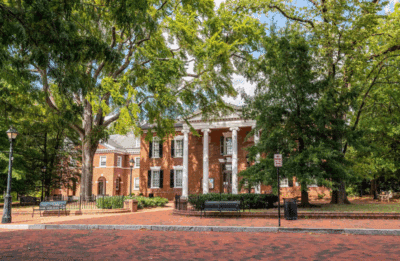
31-40: Culture & Community
-
Artistic and performing venues like UVA Drama, the John Paul Jones Arena, Jefferson Theater, Live Arts, the Ting Pavilion, and Paramount Theater. Livability.com
-
A thriving local music scene started by the Dave Mathews Band, intimate, varied, and lively.
-
UVA brings speakers to the Miller Center, concerts, and performances regularly including the Virginia Film Festival, Virginia Festival of the Book, Tom Tom Festival, and Crozet Arts and Crafts Festival.
-
Farmers’ markets with fresh local produce and community feel.
-
Charming, friendly locals, smiling runners, engaged citizens on great running trails.
-
A liberal, international community, many residents are from around the globe including a diverse, artistic LGBTQ community.
-
Strong civic commitment, residents involved in schools, conservation, arts.
-
A sense of safety and community, despite challenges seen in bigger cities.
-
Charlottesville consistently ranks among the happiest and most livable places in the U.S.
-
A balanced lifestyle, works for students, families, retirees, professionals.
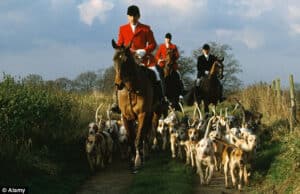
41-50: Fox Hunting & Beagling Tradition
-
Keswick Hunt Club, one of the oldest and most prestigious foxhunting clubs in the U.S., founded 1896.
-
Year-round social events at Grace Episcopal Chuch in Keswick.
-
Farmington Hunt Club, historic hunts right near Charlottesville with lively tailgates.
-
Great fishing areas such as the James River, Chris Greene Lake, Beaver Creek Park, Albemarle Lake, Rivanna Reservoir and the Moormans River, particularly its upper sections within Shenandoah National Park and the portion above Sugar Hollow Reservoir, offers excellent trout fishing, including opportunities for native brook trout and stocked rainbow and brook trout. Sugar Hollow Reservoir itself is a stocked trout lake. Other options include trout-stocked lakes such as Crozet’s Mint Springs Valley Park and Scottsville Lake, though these are stocked during colder months.
-
A thriving local tradition connecting community, equestrian sport, and land conservation including the biannual Foxfield Steeplechase Races.
-
Beagling (rabbit hunting) is active in the region, smaller-scale, accessible foxhunting tradition.
-
Equestrian events, hunter paces, and pony clubs all foster local connections including the nationally-syndicated Keswick Horse Show.
-
Bow hunting preserves on public and private lands.
-
A social scene wrapped in timeless traditions: hunts, teas, parties, dances, and friendships.
-
A genuine link to Virginia’s historical countryside and genteel past including Meriwether Lewis birthplace in Ivy, Virginia and his family homestead Clover Fields in Keswick and William Clark’s home.
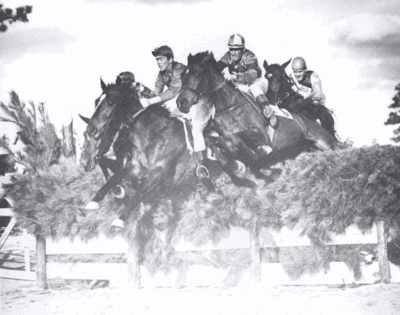
51-60: Food, Wine & Beverage
-
A dynamic and growing brewery scene, local craft beers for every taste. Toby Beavers Realtor
-
More than 40 wineries within a 45-minute drive, many award-winning.
-
King Family Vineyards includes polo matches and fireplace tastings. Toby Beavers Realtor
-
The Monticello Wine Trail, scenic wine tours in beautiful settings.
-
The historic Batesville Market offers dining, wine and music; and the Greenwood Gourmet Grocery, among others, brings innovative, take out.
-
A vibrant culinary scene, from cozy cafes to high-end farm-to-table.
-
Crozet’s Chiles Orchard , Henley’s Orchards , and Carter’s Mountain Orchard (one of the most romantic places to be at sunset with 180 views of Charlottesville) offer local food and wine and offer pick-your-own in season.
-
A culture of pairing great food with beautiful Blue Ridge Mountain views.
-
Wine, beer, and food festivals throughout the year celebrate local flavors.
-
A foodie’s dream, diverse cuisines, fresh ingredients, creativity abound.
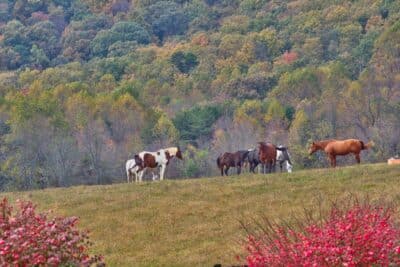
61-70: Quality of Life & Economy
-
Low unemployment, hovering around 2.4-2.7%. Home & Money
-
A strong, diverse local economy, UVA, UVA Law School, UVA School of Education and Development, Darden Business School, startups, tourism, and organic agriculture.
-
Walkable, compact city center with big-city amenities. Livability.com
-
A city that balances tradition with innovation.
-
Easy access to DC (2.5 hours) and Richmond (1 hour) by car.
-
High quality healthcare and services in a smaller-town context bouyed by the UVA Health System and Sentara Martha Jefferson Hospital.
-
Parks covering a generous portion of the area; over 80% live within a ten-minute walk of a park.
-
Plentiful job opportunities thanks to the university and expanding business sectors.
-
A city that supports sustainable growth while preserving open space.
-
A community prioritizing livability and the environment.
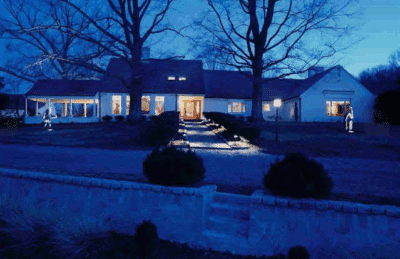
71-80: Social Dynamics & Diversity
-
Charlottesville & Albemarle County offer some of the most diverse school systems in the state, languages, cultures, backgrounds. charlottesvilleschools.org
-
Strong refugee and international resettlement networks: IRC, International Neighbors.
-
A liberal, welcoming atmosphere for students, leaders, immigrants, and culture seekers.
-
Community engagement, activism, and thoughtful civic life are alive and well.
-
A high sense of friendliness, even strangers greet you on trails and sidewalks.
-
Festivals, markets, and events bring people together year-round.
-
Neighborhoods with strong social ties and generational roots.
-
UVA contributes global perspectives and research into local progress.
-
A town that retains small-town warmth with big-city opportunities.
-
Residents take pride in sustainability, inclusion, and education.

81-90: Accessibility & Connectivity
-
Regional airport (our new Charlottesville-Albemarle Airport) and Amtrak train options make travel easy.
-
Short drives to beaches (Virginia Beach 2.45 hours) and the Blue Ridge Mountains (20 mins).
-
Compact layout, work, school, nature, and culture are always within reach.
-
Excellent walkability and bike-friendliness throughout town and county.
-
Multiple transportation options for students and professionals.
-
A regional hub with global connections through UVA’s networks.
-
Scenic drives like Blue Ridge Parkway easily accessible and end with a 2-mile walk through Napoleon Bonaparte’s chief engineer, Claudius Crozet’s wonder of the world, the 1850s Blue Ridge Tunnel.
-
The city is proud of its amenities, from free downtown trolley service and a comprehensive city bus system to well-maintained streets, roads, hiking trails, parks and recreational facilities.
-
A supportive infrastructure for families, students, and retirees.
-
Seamless balance of rural ease and modern commute by bike or ride the Jaunt throughout the county and city.
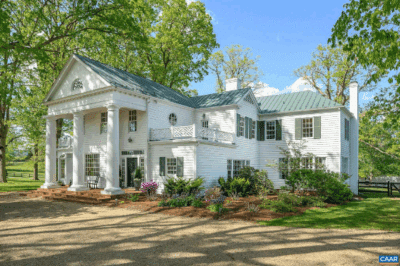
91-100: Lifestyle & Spirit
-
One of the “happiest towns” in America, emphasis on balance.
-
Strong work-life balance rooted in access to nature, culture, and learning. And for history visit the Albemarle Charlottesville Historical Society, a wonderful local non-profit dedicated to collecting, preserving, and sharing the rich and complex history of the Albemarle-Charlottesville area..
-
Retirees love the fabulous Senior Center, for lifelong learning, relaxed pace, culture and University Village living.
-
Thought-provoking, engaged community, people love questioning and conversing with the monthly Albemarle Magazine, the Daily Progress, our daily newspaper, C-ville Weekly, Cavalier Daily (UVA’s newspaper), the Crozet Gazette, Crozet’s weekly paper about ALL things Crozet, and back issues of the discontimued Keswick Life.
-
A vegetarian haven for arts, food, horses, outdoor fun and, reeling and rafting on the James River.
-
Charming fall foliage, balmy summer days, and winter that’s cool but gentle.
-
The aroma of mountain air, vineyards, and historic brick streets.
-
A community that nurtures both ambition and calm.
-
A place where history meets the future, in education, agriculture, and mindset.
-
Because once you move here, like many residents say, you never look back.
Toby Beavers, a Charlottesville realtor guide since 2003, may be reached by text or phone at 434-327-2999
100 reasons to move to Charlottesville VA and what to consider when choosing your move
A Quick Orientation To the Charlottesville Region
Charlottesville sits in the foothills of the Blue Ridge Mountains in central Virginia. It’s anchored by the University of Virginia (a living architectural statement from Thomas Jefferson) and surrounded by a network of historic estates, working farms, vineyards, breweries, and hunt country, all within easy driving distance of the mountains and metropolitan corridors to the north and south.
The 2025 City of Charlottesville population is 47,000 and the population for Albemarle County is 118,000. These figures represent a slight increase from their 2020 Census populations, with the combined population for the city and county approaching 165,000.
1) Schools: public, private, and university – what to expect
The University of Virginia (UVA)
UVA is a global anchor for the city: an academic engine, major employer, cultural magnet, and stadium/arts organizer. Jefferson’s Academical Village is a UNESCO World Heritage site paired with Monticello in recognition of their architectural significance. If you’re moving for higher education, faculty work, research partnerships, or a campus-driven cultural life (lectures, concerts, athletics), UVA changes the rhythm of the whole town. (The University of Virginia, UNESCO World Heritage Centre)
Charlottesville City Public Schools
For families inside the city limits, Charlottesville City Schools run the public K–12 system with neighborhood elementary schools, a middle school, and Charlottesville High School. The division emphasizes diversity and curricular offerings and maintains active community engagement. If you live inside city boundaries, your school options and school-bus logistics will follow the city district’s map and enrollment rules. Virginia School Quality Profiles)
Albemarle County Public Schools
Many people who want a bit more yard and country life opt for homes in Albemarle County (surrounding Charlottesville). Albemarle County Public Schools is a larger district with several highly rated high schools (e.g., Albemarle High, Western Albemarle High, Monticello High) and robust programming in arts, STEM, and career/technical pathways. The county system serves more students overall and tends to cover sprawling areas, so commute times and school assignment timing matter. (Albemarle County School District). Charlottesville High is also highly rated.
Strong Private School Options
Charlottesville has several respected independent and boarding schools. Six names often come up in conversations about private education:
- St. Anne’s-Belfield School – coed, pre-K through grade 12, with a reputation for strong college preparation and a well-resourced academic and arts program.
- Miller School of Albemarle – a historic boarding/day school serving older students with a large campus and strong residential program.
- Tandem Friends School
- The Covenant School
- Field School of Charlottesville
- The Renaissance School
- The Village School
Families weigh private vs. public choices based on educational fit, commute, extracurricular needs, and boarding options for teens.
How to choose
- If you need top tier college-prep academics close to campus life, investigate St. Anne’s-Belfield and UVA programs for early college credit. (stab.org, The University of Virginia)
- If your property search pushes into Albemarle County, factor in bus routes, school boundaries, and the daily commute; the county district is large and offers diverse choices. (Albemarle County School District)
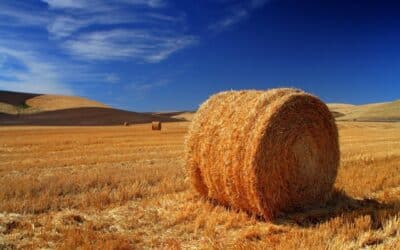
2) Farms,Wineries & Vineyards – What makes the Monticello Wine Trail Special
Charlottesville sits inside the Monticello AVA (American Viticultural Area), a wine region with decades of winemaking tradition tied to Jefferson’s early ambitions for Virginia wine. Today the Monticello Wine Trail is a cluster of dozens of wineries (many family-run) stretching across Albemarle and neighboring counties. The result: a compact, scenic wine region with tasting rooms, farm-style venues, picnic lawns, live music, and seasonal events. (Monticello Wine Trail)
Notable wineries you’ll actually want to visit
- Jefferson Vineyards – a longtime local producer located minutes from Monticello; they’re noted for Viognier and historical linkages to Jefferson’s experiments in viniculture. Perfect for an easy, historically flavored tasting. (jeffersonvineyards.com)
- King Family Vineyards – family-run, scenically sited in Crozet, with a reputation for warm hospitality, guided tours, and events that include polo matches and on-site music nights. Great for weekends and outdoor events. (King Family Vineyards)
- Pippin Hill Farm & Vineyards, Blenheim Vineyards, Trump Vineyards & Cidery, and the world-famous Barboursville Vineyards and many others within easy reach; each winery tends to present a unique vibe, boutique tasting rooms, wedding venues, or large-scale event farms. (Monticello Wine Trail, Southern Living)
The visitor experience and lifestyle takeaways
- Weekends often center on wine: lazy tastings, long lunches, and vineyards full of families and couples in good weather. The wine trail supports an event economy, concerts, bridal showers, and harvest festivals. (Monticello Wine Trail)
- Wine + outdoors = a lifestyle: people move here wanting short drives to scenic tasting rooms, pairing local wines with hikes or picnics in the Blue Ridge foothills. (Southern Living)
3) Breweries and craft beverage culture
The region’s craft-beer scene is lively and eclectic: urban taprooms and rural farm breweries share the calendar.
- Three Notch’d Brewing has presence in Charlottesville and an accessible taproom and kitchen at IX Art Park, a great downtown hang that combines art, beer, and events. (Three Notch’d Brewing Company, Yelp)
- Starr Hill Brewery – born in Charlottesville’s music-and-beer culture and expanded across Virginia; they operate Crozet and downtown locations and host family-friendly events. (Starr Hill Brewery)
- Blue Mountain Brewery in Afton (just over the Albemarle County line in Nelson County) is a farm brewery and one of the region’s rural craft pioneers; its setting in the mountains gives you the farm-to-glass ethos. (bluemountainbrewery.com)
Why it matters for movers
If you like a social lifestyle built around tasting rooms, weekday trivia nights, brewery food, and outdoor patios, Charlottesville’s mix of breweries and wineries offers both walkable taprooms (downtown) and day-trip destinations (rural breweries and vineyard restaurants).
4) Fox hunting, beagling, and the equestrian culture
If you’re drawn to countryside tradition, Charlottesville sits deep in classic Virginia hunt country. The area hosts multiple historic hunt clubs and beagling packs, social and sporting institutions that preserve rural land use, community rituals, and equestrian competition.
The major hunts
- Keswick Hunt Club – founded in 1896, Keswick is often called one of the most prestigious foxhunting clubs in the U.S.; its calendar includes mounted hunts, hunter paces, and social events that attract local equestrians and visitors. (Keswick Hunt Club)
- Farmington Hunt Club – an Albemarle institution with kennels near Free Union; it runs a full schedule of meets, social functions, and community programming. (Farmington Hunt Club)
Beagling and smaller-scale packs
Beagling (hunting with packs of beagles after rabbits) has a passionate following in central Virginia: there are beagle packs and clubs that host meets and field trials; the National Beagle Club is nearby in Aldie and regional packs often run in the fall and winter months. Beagling traditions are friendlier to newcomers (and to folks without mounts) than mounted fox hunts and provide a distinct rural experience. (Virginia Living, National Beagle Club)
Lifestyle notes (land, community, access)
- Hunt country helps preserve open land and scenic vistas; landowners often partner with hunts to allow access to fields, which in turn helps maintain large tracts of rural acreage. (Keswick Hunt Club, Farmington Hunt Club)
- Newcomers often join hunts as social members before becoming regular hunt participants; many hunts welcome non-riding social members (events, picnics, and tailgates). (Keswick Hunt Club, Farmington Hunt Club)
5) Neighborhoods: a guided tour of local flavors and housing options
One of the top 100 reasons to move to Charlottesville VA is its strengths is variety. Below are neighborhood snapshots, what makes each area distinct and what buyers often look for.
Downtown Charlottesville Condos for Sale & the Downtown Mall (North Downtown)
- Character: compact, walkable, pedestrian mall, theaters, restaurants, cafes, bookshops, and a lively nightlife and arts scene. Great for people who want to walk to dinner, downtown events, UVA buildings, and short commutes.
Belmont
- Character: older, historic neighborhood directly south of downtown. It grew around a 19th-century estate and features a mix of turn-of-the-century homes and more modest parcels; convenient to downtown and University Drive for commuters. If you want proximity to the mall while keeping a quieter residential street, Belmont is a common choice. (Charlottesville Official Website, Cvillepedia)
Fifeville
- Character: historically significant, diverse, and near UVA. Fifeville has a strong neighborhood identity and pockets of historic homes alongside newer infill. Families and young professionals both live here, with easy access to central Charlottesville amenities. And probably the most affordable Charlottesville neighborhood today. (Cvillepedia, Wikipedia)
Woolen Mills
- Character: an old industrial village on the Rivanna River, now a mix of historic mill houses and ‘creative’ reuse spaces. The Woolen Mills Village area is prized for river access, community gardens, and a quiet, village feel inside city limits. Woolen Mills made the grey uniforms for the Confederacy. I don’t see all the hype so be sure you aren’t over-paying. (Charlottesville Official Website, The Historic Woolen Mills)
Crozet
- Character: a separate small town about 12 miles west of Charlottesville with a strong community identity, a renovated downtown, access to trails, and nearby wineries. As a savvy Crozet real estate agent since 2003, Crozet real estate is popular with families who want good schools, new master-planned communities (Old Trail), and mountain views but still want a manageable commute to Charlottesville. (See 27 Reasons To Love Living in Crozet VA)
Keswick & Hunt Country (Albemarle country homes)
- Character: sprawling estates, equestrian properties, and classic hunt country. If you want acreage, privacy, formal gardens, or proximity to clubs like Keswick Hunt and reminders of Virginia’s landed landscape, this is the place, note that these neighborhoods are rural and come with longer commutes. Is Keswick a nice place to live? Yes, see: 26 Reasons To Love Living in Keswick VA – Toby Beavers Realtor Guide
Ivy, Greenwood, and Afton
- Character: rural, often agricultural, and attractive for those seeking genuine country living , farms, vineyards, and wide vistas. Ivy, Greenwood, and portions of Afton have become sought after for country estates that remain surprisingly close to the city proper. (See 20 Reasons To Love Living in Ivy VA and 25 Reasons to Love Living in Greenwood VA)
Real-estate reality checks
- Prices vary: downtown condos and historic bungalows differ dramatically in price from Crozet’s Old Trail and Keswick Estate. Expect substantial spreads depending on lot size and amenities.
- Commuting: 12-20 minutes from Crozet to downtown, more from rural hunt country, factor traffic on Rt. 29 and seasonal tourist surges (weekends in fall).
6) Resorts, historic inns, and standout restaurants
Charlottesville isn’t just for residents, it’s a culinary and hospitality destination. That same hospitality spills into resident life: fine dining, weekend getaways, and special events are right down the road.
Luxury resorts & inns
- Keswick Hall – reimagined luxury resort with a golf course, spa, and Marigold by Jean-Georges as a signature restaurant; it’s a showpiece for special events and weekend stays. (Keswick Hall)
- Boar’s Head Resort – owned by UVA Foundation, an expansive property with top racquet facilities, trails, and restaurants; it’s integrated with university life and local events. (Boar’s Head Resort)
- The Clifton Inn – a historic inn with modern luxury touches, celebrated for its restaurant 1799 and scenic grounds; a favorite for weddings and escapes. (The Clifton, Southern Living)
Restaurants to know (taste + context)
- Marigold by Jean-Georges at Keswick offers seasonal, farm-driven menus with the pedigree of a Jean-Georges collaboration , one of Charlottesville’s headline culinary experiences. (Keswick Hall, marigoldjg.com)
- Beyond Marigold, Charlottesville’s food scene includes a mix of acclaimed farm-to-table eateries, casual comfort spots, coffee roasters, and food markets.
Why this matters for daily life
- Access to high-quality dining and resort amenities changes how residents entertain and host guests. Weekend brunches, concert nights at a winery, or a spa day at Keswick fold into a local lifestyle many choose when relocating here. (Boar’s Head Resort, Keswick Hall)
7) Arts, culture, and community life
Charlottesville packs cultural heft into a small footprint:
- Performance venues: Paramount Theater and the Ting Pavilion host touring shows and music; UVA presents concerts, lectures, and art exhibitions that are often open to the community. (Virginia Cavaliers Athletics, The University of Virginia)
- Historic sites: Monticello, Highland (Monroe’s home nearby), and other estates offer museums, gardens, and educational programming tied to the nation’s founding figures, a mixed legacy that’s central to the place’s public conversations. (Monticello, UNESCO World Heritage Centre)
- Markets & festivals: a regular farmers’ market, wine-and-harvest festivals, craft beer events, and university sports create a steady calendar of social life. (Virginia is for Lovers, Southern Living)
8) Practical moving advice: logistics, neighborhoods, and money
Commute & transportation
- Car first, bike/walk-friendly in pockets: Charlottesville and surrounding counties are car-centric but the city’s core neighborhoods are very walkable. Expect to drive for countryside commutes and winery runs. Public transit exists but is limited compared to big metros, consider school bus logistics for kids if you choose Albemarle County neighborhoods. (Albemarle County School District)
Buying vs Renting Charlottesville Real Estate
- Rent downtown if you want walkability and cultural access without property maintenance.
- Buy in Crozet or Albemarle if you want new-build neighborhoods, yards, and a quieter family life.
- Buy in Keswick or larger rural tracts if you’re seeking acreage, equestrian facilities, or estate privacy (and plan for longer drives). (Keswick Hall)
Schools and timing
- If schools are a priority, begin research early: school boundaries, application windows for private schools, and whether boarding (Miller School) or private day school (St. Anne’s-Belfield) is the best fit for your family. Attendance zones move, and new housing developments can change feeder patterns, so consult the district early. (Albemarle County School District, stab.org)
Charlottesville Weather & Seasons – What to prepare for
- Four distinct seasons: green springs, hot summers, vivid autumn foliage, and generally mild winters (though mountain snow happens). For landowners, make plans for drainage and snow access on private drives. (Southern Living)
9) Putting it together: matching neighborhoods to lifestyles
Here are simple profiles to match priorities with practical neighborhoods:
- I want walkability, nightlife, and campus energy → Downtown, North Downtown, Belmont, Fifeville.
- I want family yards, new subdivisions, and schools → Crozet (Old Trail, neighborhood villages), Albemarle County suburbs.
- I want beautiful acreage, equestrian life, and privacy → Keswick, James River plantations, and deeper Albemarle countryside.
- I want a creative, riverside community → Woolen Mills or neighborhoods near the Rivanna Trail and river access.
10) Neighborhood scouting checklist (what to look for on the first trip)
When you visit, bring this checklist:
- Drive times: measure the commute from candidate neighborhoods to work/school.
- School route: visit the schools, meet with administrators, and check extracurriculars. (Albemarle County School District)
- Weekend vibe: are downtown restaurants and breweries busy? Are vineyards hosting concerts? That tells you about tourist cycles and local culture. (Monticello Wine Trail, Starr Hill Brewery)
- Land specifics: for acreage, confirm water access, well/septic systems, and easements (especially if hunt country borders the property). (Keswick Hunt Club)
- Community services: grocery access, healthcare, and recreational facilities, all these change depending on whether you live in town or in the county. (Boar’s Head Resort, Albemarle County School District)
11) Getting plugged in: clubs, volunteerism, and local culture
- Hunt memberships and pony clubs are not just sport, they’re major social networks in the region; newcomers often attend social events before committing to rides. (Keswick Hunt Club)
- University events: concerts, lectures, and continuing-education programs are open to residents and create easy ways to meet people. (The University of Virginia)
- Food and beverage scenes: local breweries, wine festivals, and farmers’ markets are natural social nodes for families and friends. (Monticello Wine Trail, Starr Hill Brewery)
12) A few local logistics that surprise newcomers
- Tourist season: autumn (leaf-peeping and wine season) brings strong visitor traffic, expect lines at tasting rooms and busier restaurants on fall weekends. Planning helps.
- Preservation & land use: hunt clubs and vineyards both have a strong interest in preserving farmland; that can mean robust conservation partnerships, excellent for buyers who want protected vistas, but also something to understand when planning construction or changes on a property.
- Small-town scale with big ideas: Charlottesville balances an intellectual, global university culture with a traditional rural sensibility, you’ll meet both world-class academics and multigenerational farmers in the same conversation. (The University of Virginia, Virginia is for Lovers)
13) Sample itineraries for house-hunting days (two options)
One-day “taste of Charlottesville” (ideal for newcomers)
- Morning: Coffee on the Downtown Mall and a walk through the shops.
- Midday: UVA campus walk (Rotunda, Academical Village) and Monticello visit. (The University of Virginia, Monticello)
- Afternoon: House showings in Belmont and Woolen Mills, then an early vineyard tasting at Jefferson Vineyards. (Charlottesville Official Website, jeffersonvineyards.com)
- Evening: Dinner at a notable local restaurant on the historic Downtown Mall or Marigold.
Two-day “buying deep dive” (weekend)
- Day 1: Full morning of school visits (Charlottesville City + Albemarle schools), check open houses in Crozet, and meet an agent about rural properties. (Albemarle County School District)
- Day 2: Drive through Keswick and Albemarle hunt country; visit a winery and a brewery to feel the lifestyle; dinner at Marigold or a Clifton experience. King Family Vineyards, marigoldjg.com
14) My Final thoughts of 100 Reasons Love to Move To Charlottesville VA
People move to Charlottesville for many overlapping reasons: intellectual life anchored by UVA, celebrated food and beverage culture, preserved countryside and equestrian traditions, high-quality schools (public and private), and an easy relationship with nature, hiking, rivers, and vineyards within short drives.
Those attributes combine into a lifestyle that’s simultaneously calm and curious: good for families, retirees seeking learning and culture, or professionals who want proximity to both the mountains and the D.C./Richmond corridors.
P.S. Here’s MY list of the Best Charlottesville neighborhoods (not in any particular order): 500 Court Square (historic Charlottesville downtown condos), Belvedere, Lewis Mountain (a Charlottesville city neighborhood off UVA) Colthurst, Greencroft, Glenmore, Farmington, Keswick Estate, Blandemar Farm Estates, Frays Grant, Ednam Village, Ednam Forest, Lake Reynovia, Redfields, Bundoran Farm, Ragged Mountain Farm, Rosemont Farm, Kenridge (luxury townhomes next to Farmington C.C. and The Boar’s Head Resort), McGuffey Hill (older Charlottesville downtown condos), The Gleason (downtown highrise condos), White Gables II (newest Charlottesville condos), and White Gables Condos.
So there you have my 100 Reasons To Move to Charlottesville VA…Are there any reasons not to move to Charlottesville, VA? I can’t think of any. Can you?
Toby Beavers, a Charlottesville realtor guide since 2003, may be reached by text or phone at 434-327-2999

Want more? Check out this Youtube video on Why To Move To Charlottesville

